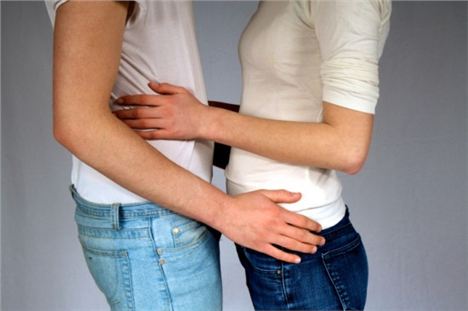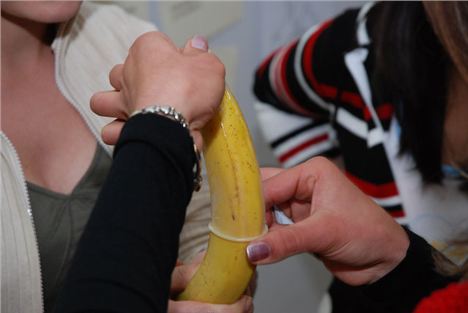POPPING your cherry, your first time, losing ‘it’, the ‘big V’ or as some parents tactfully put it ‘de-flowering’, whatever we called it back then, at 15-years-old I was certain that those who boasted they had lost their virginity were lying.
I, for one, remember the awkward ‘sex-ed’ discussions in my Catholic high school, where we were told to practice abstinence and then clumsily talked through various contraception methods.
Even so, regardless of who was doing ‘it’ and who wasn’t, it was being discussed well before the age-of-consent,16, and school was filled with teenagers conflicted about who to do it with, how to do it and most importantly, when.
Over the past week, the age-of-consent has been discussed outside of the school gates and within the media and parliament. Despite 16 widely accepted as an appropriate time young people should engage in sex, it’s reported that ‘between a 1/3 and a ¼ of teens’ have already reached that step before 16.
We’re all very much aware that currently the UK ‘has the highest rate of teenage pregnancies and abortion rates in western Europe’, the number of teens with STIs ‘has doubled in the past 10 years’ and we have, compared to our more liberal European neighbours, an unimpressive sex education curriculum.
I, for one, remember the awkward ‘sex-ed’ discussions in my Catholic high school, where we were told to practice abstinence and then clumsily talked through various contraception methods. Most of us were left with a mixture of guilt and confusion and for some of those in class, the ‘sex-ed’ talk came a little too late.
It’s clear the current legal deterrent is not working as well as it should, as well as the sexual education system put in place. Evidently, a sex talk needs to be had on a wider scale with government, parents and in schools, to improve and encourage an environment where young people can comfortably go to talk about sex.
When the President of the Faculty of Public Health, Professor John Ashton, called for the age-of-consent to be lowered to 15 as it would “draw a line in the sand” at sex at 14 and younger, he was met with understandable concerns.
Noting that countries with a lower age of consent have lower teenage pregnancy rates, Prof Ashton said: "We need a debate here. It's time the adults started talking about the situation to take these enormous pressures off children and young people from becoming sexually active too early.
"Also to recognise the facts of what's going on by the age of 14 or 15 so that we can respond helpfully to them and support them on this journey into adult life."
Many view Ashton’s call to lower the age of consent as a contradictory message to send to young people and it’s difficult to conceive how lowering the age limit could improve Britain’s problems with underage sex and early pregnancies.
Yet Ashton explains, “Because we are so confused about this and we have kept the age of consent at 16, the 15-year-olds don’t have clear routes to getting some support,”
Agreeably it’s a debate that needs to be had, yet in the wake of Jimmy Saville and the 72 underage victims he sexually assaulted that has come to light, reducing the age limit seems a little counter-productive in the protection of young people and may give legitimacy to those who prey on younger people.
It is with these concerns Downing Street has rejected Ashton’s call and stated the current age of 16 was in place to protect children and there were "no plans to change it".
Nick Clegg also echoed similar concerns, explaining on BBC's Andrew Marr Show: "I'm worried, like everybody's worried, about the sexualisation of the culture and the information that so many young people are bombarded with at the moment. That's why I do want see action,"
He added: "I'm constantly urging (Education Secretary) Michael Gove and the Department for Education to update and modernise sex education in schools which hasn't kept up with the internet age. But do I think simply a blanket reduction in the age of consent is the answer to this difficult dilemma? No."
It’s unfair to render all the UK’s current methods to promote good sexual health in teens as ineffective. Brook the UK’s leading young people’s sexual health charity works with thousands teenagers of all ages, providing advice and contraception.
CEO of Brook, Simon Blake, believes Prof Ashton, in some part is “absolutely right” agreeing that “as a country we are confused about sex and sexuality and you just need to look at the range of messages young people get to see they do get mixed messages about sex and sexuality.”
Yet Blake believes the age-of consent at 16 “ is a good indicator of the age at which we think people will be mature enough to enjoy and take responsibility for their sexual decisions.”
He also shared on his blog the views of the young people Brook work with, claiming young people are happy with the current legal age. He said: “They say it makes it clear when we think it is about the right time to have sex if they are ready.
“Some young people - particularly young women - tell us the age of consent can be a good negotiating tool if they don't want to have sex, and are being encouraged or feel pressured to by a partner.”
In a lot of ways the age of consent does seem suitable as it is. Sixteen is the high school leaving age for most, you’re legally allowed to work full time, join the armed forces, get married with consent and overall gain more responsibility. Why not then, 16 still be the time, when in the eyes of the law, you take more responsibility for your own body?
Instead, it would seem the progress would be working towards removing the shame put on young people when asking questions about sex and ensuring sexual education becomes less patronising in schools. Maybe not so much putting condoms on bananas, but an open place that provides guidance whenever they’re ready.
Manchester’s Brook Centre (for 19 and under) is based at:
Commonwealth House
81 Lever Street (near Great Ancoats Street)
Manchester
M1 1FL
Follow L'Oreal on Twitter @loreal_b











